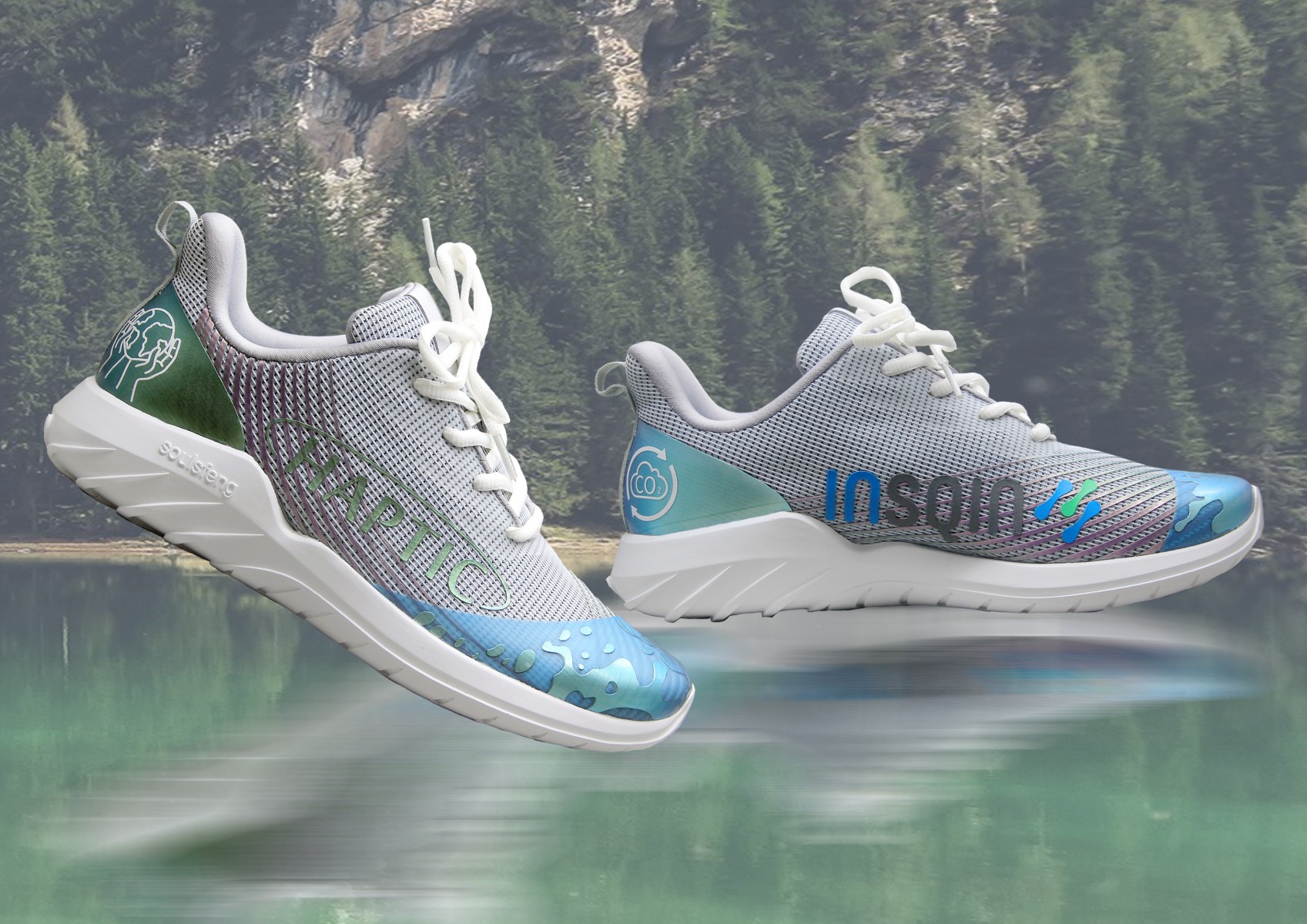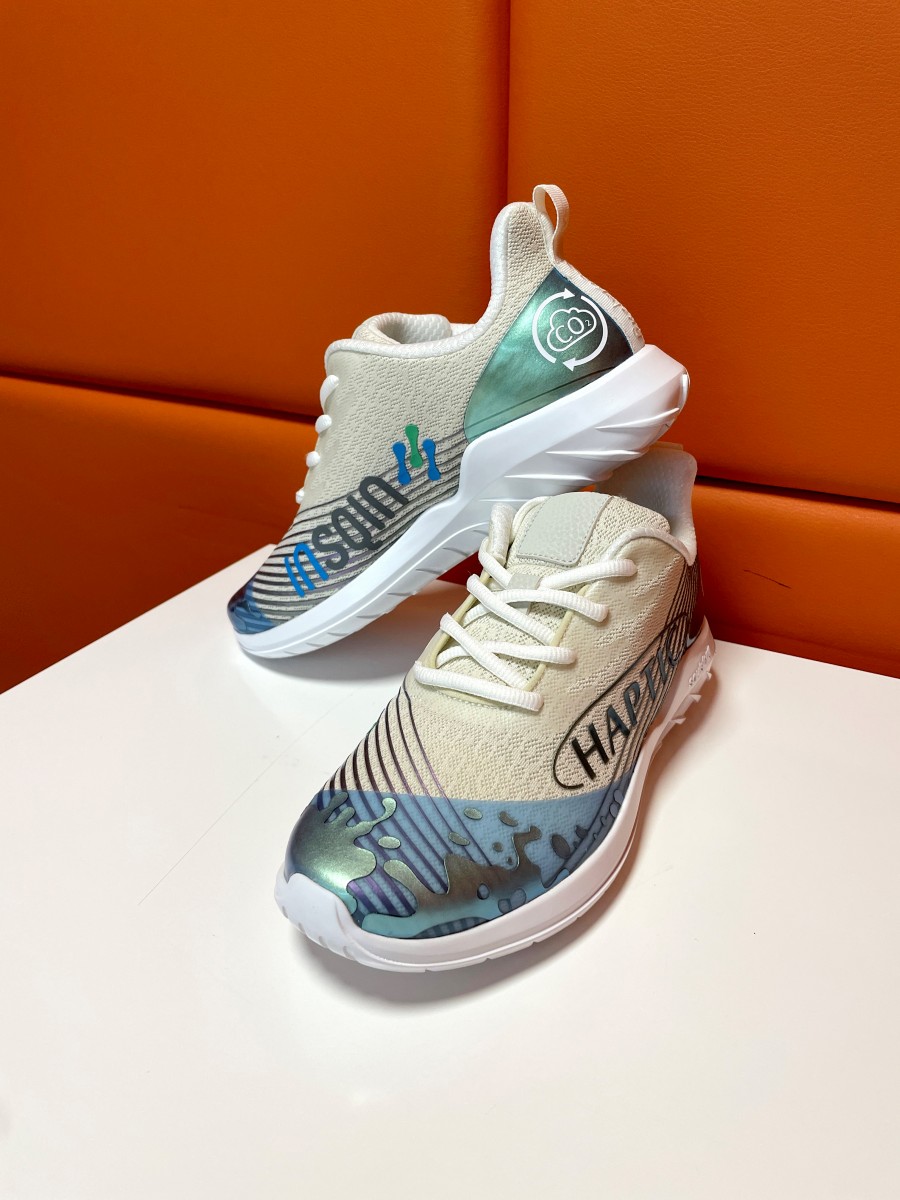
Covestro, textile technology company Huafeng and green fiber technology company Cyclone from China have jointly developed a solution to produce high-quality running and sports shoes in a much more sustainable way than before: recycled fabric made from CYCLONE® recycled polyester (rPET) yarns is used as the shoe upper and selectively coated using Huafeng’s HAPTIC® technology. In the process, Huafeng uses a polyurethane (PU) dispersion from the INSQIN® portfolio of Covestro, half of whose carbon content comes from bio-based raw materials. The greenhouse gas emissions for each pair of shoes produced in this way are around 230 grams of CO₂ equivalent less than a pair using conventional fossil-based PU dispersions and virgin PET fabric.
“This is good news for anyone who wants to maintain an athletically active, healthy lifestyle in the most environmentally friendly way possible,” says Tony Wu, Global Marketing Manager, Textile Coatings, Covestro. He emphasizes that the increased sustainability achieved does not compromise the durability, appearance or comfort of the footwear upper. In combination with Huafeng HAPTIC® printing technology, 3D shapes can be applied to textile fabrics creating trendy designs and high performance in athletic footwear.

Impranil® eco DLS, as a partially bio-based binder, is part of the INSQIN® range of waterborne textile coating resins. Its use contributes to reduced greenhouse gas emissions with around 60 grams of CO₂ equivalents per pair of shoes. The value comes from internal calculations verified by independent external experts. It is obvious that the difference in the CO₂ footprint becomes even greater when solvent-based PU textile coatings are used for comparison. The use of fabric based on recycled PET yarns mitigates greenhouse gas emissions by about 170 grams of CO₂ equivalent per pair of shoes.
To share the experience and findings with the industry, Covestro, Huafeng and Cyclone jointly hosted a webinar globally to introduce the three technologies and the synergy created from this co-development. The recorded webinar can be accessed here.
“Sustainability is key to our market success at Huafeng. With the help of the partially bio-based PU dispersion of Covestro, we were able to introduce more renewable ingredients into our HAPTIC® coatings, further improving their sustainability,” says Dr. Thomas Schmidt, Director of Innovation at Huafeng. Dr. Torsten Pohl, Head of Global Textile Coatings at Covestro, adds, “The combination of our partially bio-based INSQIN® PU coating binder with Huafeng HAPTIC® printing on recycled PET fabric shows how partners in the value chain can work together creating more sustainable products.”
About Covestro
Covestro is one of the world’s leading manufacturers of high-quality polymer materials and their components. With its innovative products, processes and methods, the company helps enhance sustainability and the quality of life in many areas. Covestro supplies customers around the world in key industries such as mobility, building and living, as well as the electrical and electronics sector. In addition, polymers from Covestro are also used in sectors such as sports and leisure, cosmetics and health, as well as in the chemical industry itself.
The company is committed to becoming fully circular and aims to become climate neutral by 2035 (scope 1 and 2). Covestro generated sales of around EUR 15.9 billion in fiscal 2021. At the end of 2021, the company had 50 production sites worldwide and employed approximately 17,900 people (calculated as full-time equivalents).
Source
Covestro, press release, 2022-03-08.
Supplier
Share
Renewable Carbon News – Daily Newsletter
Subscribe to our daily email newsletter – the world's leading newsletter on renewable materials and chemicals










